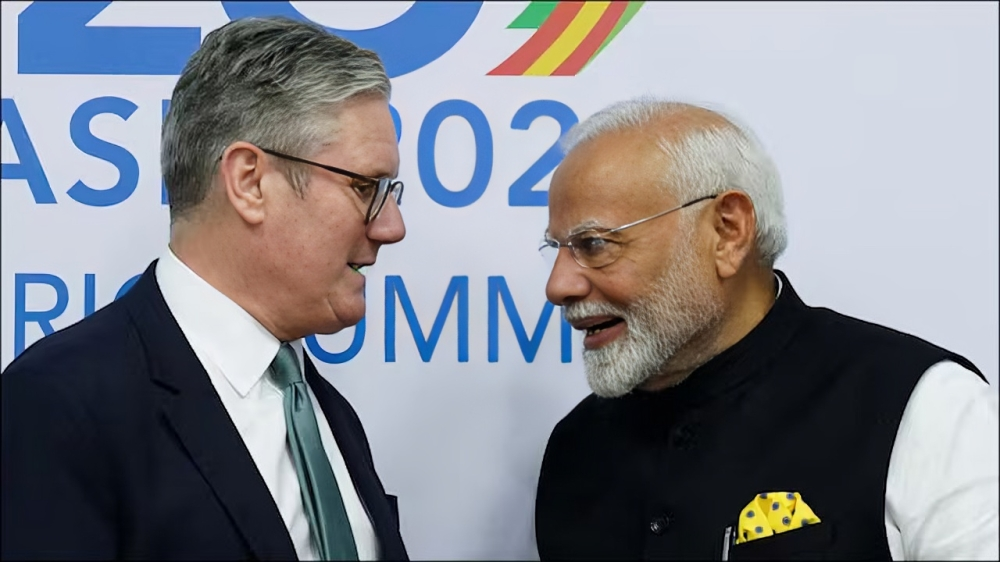India and the United Kingdom have signed a landmark free trade agreement, concluding over three years of intensive negotiations and setting the stage for a significant leap in bilateral economic relations. Signed in New Delhi by Indian Commerce Minister Piyush Goyal and UK Business and Trade Secretary Jonathan Reynolds, the agreement was finalized in the presence of Prime Minister Narendra Modi and UK Prime Minister Keir Starmer.
The Comprehensive Economic and Trade Agreement (CETA) is the most ambitious FTA the UK has signed in the Indo-Pacific region since Brexit. It aims to double bilateral trade to $120 billion by 2030 by eliminating or reducing tariffs on a wide range of goods and services.
The deal eliminates tariffs on 99% of Indian exports to the UK, providing zero-duty access for products such as textiles, footwear, carpets, gems and jewellery, automobiles, and marine goods. In return, India will reduce duties on premium British exports including Scotch whisky, luxury cars, medical devices, and aerospace parts.
Prime Minister Modi called the agreement a milestone in the India-UK relationship. He said it would provide new opportunities for Indian youth, farmers, MSMEs, and exporters while also making high-quality British products more affordable and accessible in India. Modi and Starmer also announced plans for a ‘Vision 2035’ programme to deepen cooperation across technology, defence, climate, and education.
The agreement spans 27 chapters, covering trade in goods and services, intellectual property, digital trade, innovation, government procurement, and anti-corruption measures. It excludes the contentious Carbon Border Adjustment Mechanism for now, but both nations agreed to revisit the issue in future talks.
The FTA still requires ratification by the UK Parliament, a process expected to take up to six months. Once in force, it will become India’s first major bilateral trade deal with a developed Western economy and is expected to drive investment, employment, and innovation across multiple sectors.
India and the UK also concluded a social security agreement, known as the Double Contribution Convention, which will allow Indian professionals on short-term UK assignments to avoid dual social security contributions, further easing cross-border employment.
Business leaders welcomed the agreement, calling it a transformative move. Mahindra Group CEO Anish Shah described it as a blueprint for modern, values-driven economic collaboration. Apparel Export Promotion Council Chairman Sudhir Sekhri said it would unlock a new era in garment trade with the UK, one of the world’s largest importers in the sector.
Negotiations began in January 2022 and were delayed by political shifts in the UK, including the resignation of former Prime Minister Liz Truss. Talks resumed in early 2024 and concluded in May 2025, leading to the formal signing of the agreement on July 24.
With trade already reaching $21.34 billion in 2023-24, the India-UK FTA is expected to provide a powerful catalyst for future growth, investment, and strategic alignment between the two nations.













